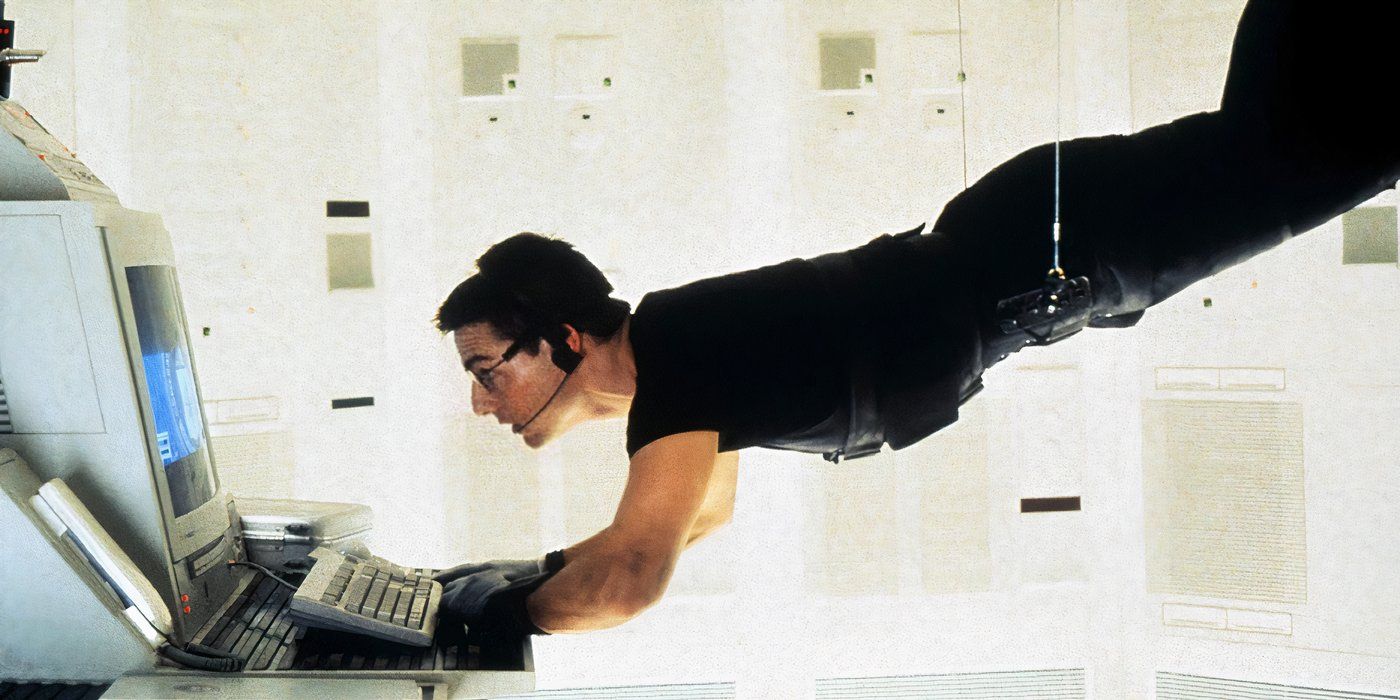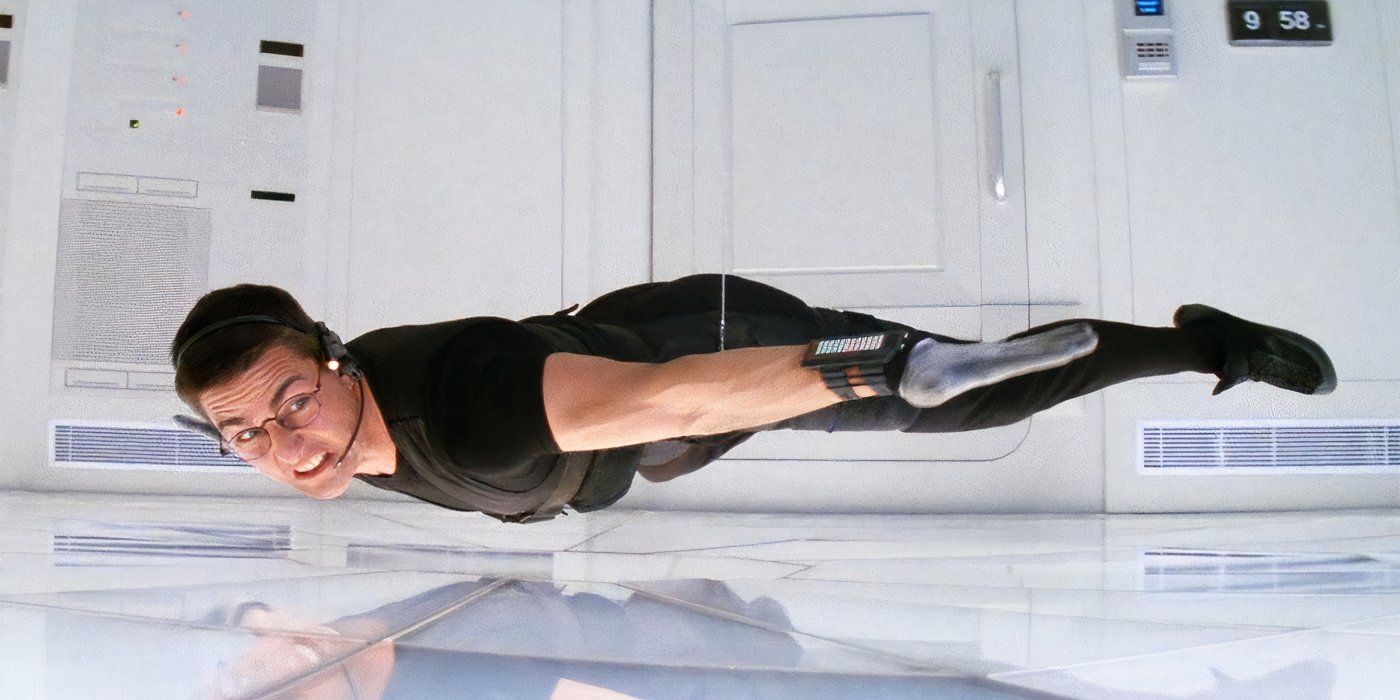The movie franchise has made quite an evolution from its 1966 TV series origin, with a significant part of this transformation attributed to a shift in cinematic style and Cruise’s exceptional commitment to making each film a standalone success. This often involves escalating the story’s tension and executing innovative stunts as the movie’s focal point. Cruise has significantly reshaped the ‘Mission: Impossible’ series by initially agreeing to return for several sequels, then partnering with director-turned-producer Christopher McQuarrie and breathing new life into the films since the fourth installment, Ghost Protocol. Since then, the series has adopted a distinct tone and aesthetic as it continues to evolve.
If viewers are acquainted with the 1966 TV series, they would grasp why there’s such a stark contrast between the initial Mission: Impossible films and those that have captivated global audiences in recent years. The early movies retained elements of the original series, which was a blend of comedic and dramatic spy adventures. When plans emerged to transform the show into a film franchise, the creators kept the spirit of the 1966 series in mind. This is why the 1996 film carries a distinct flavor that pays homage to the original while also pushing new boundaries. Interestingly, some fans may not know that the first movie was directed by a legendary filmmaker, whose involvement in a Mission: Impossible project might have seemed unexpected at the time.
Brian De Palma Directed the First Mission: Impossible Movie
The 1996 Classic Is a Quintessential Spy Thriller
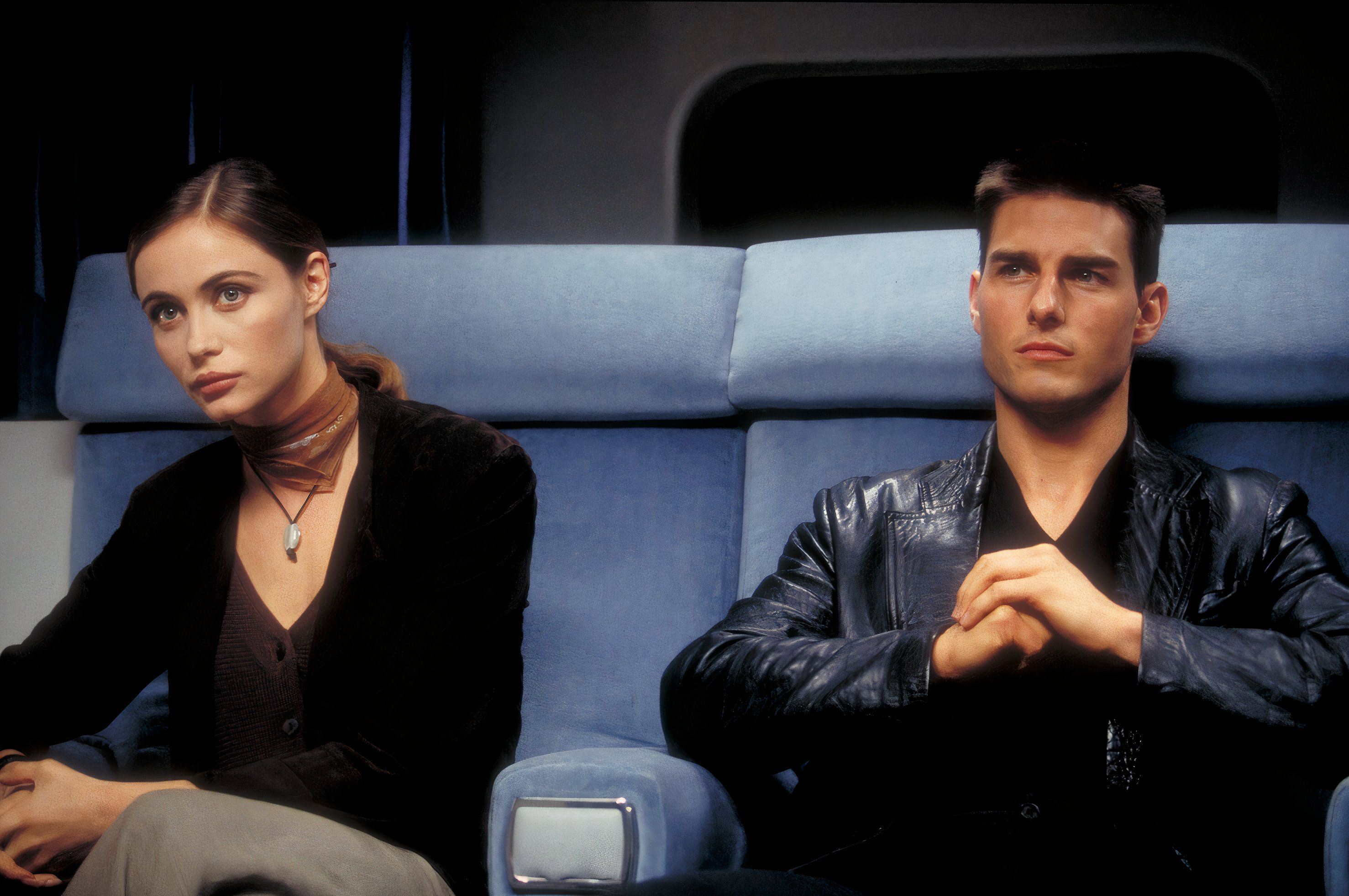
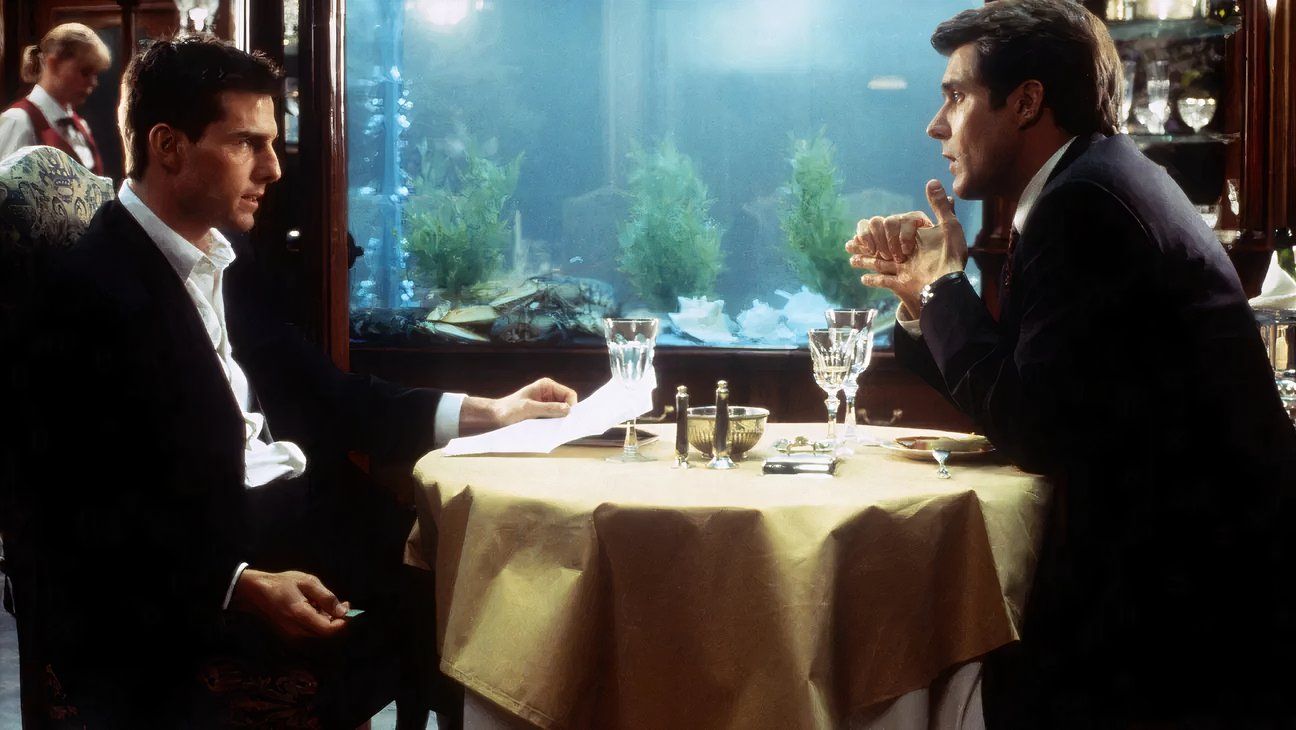
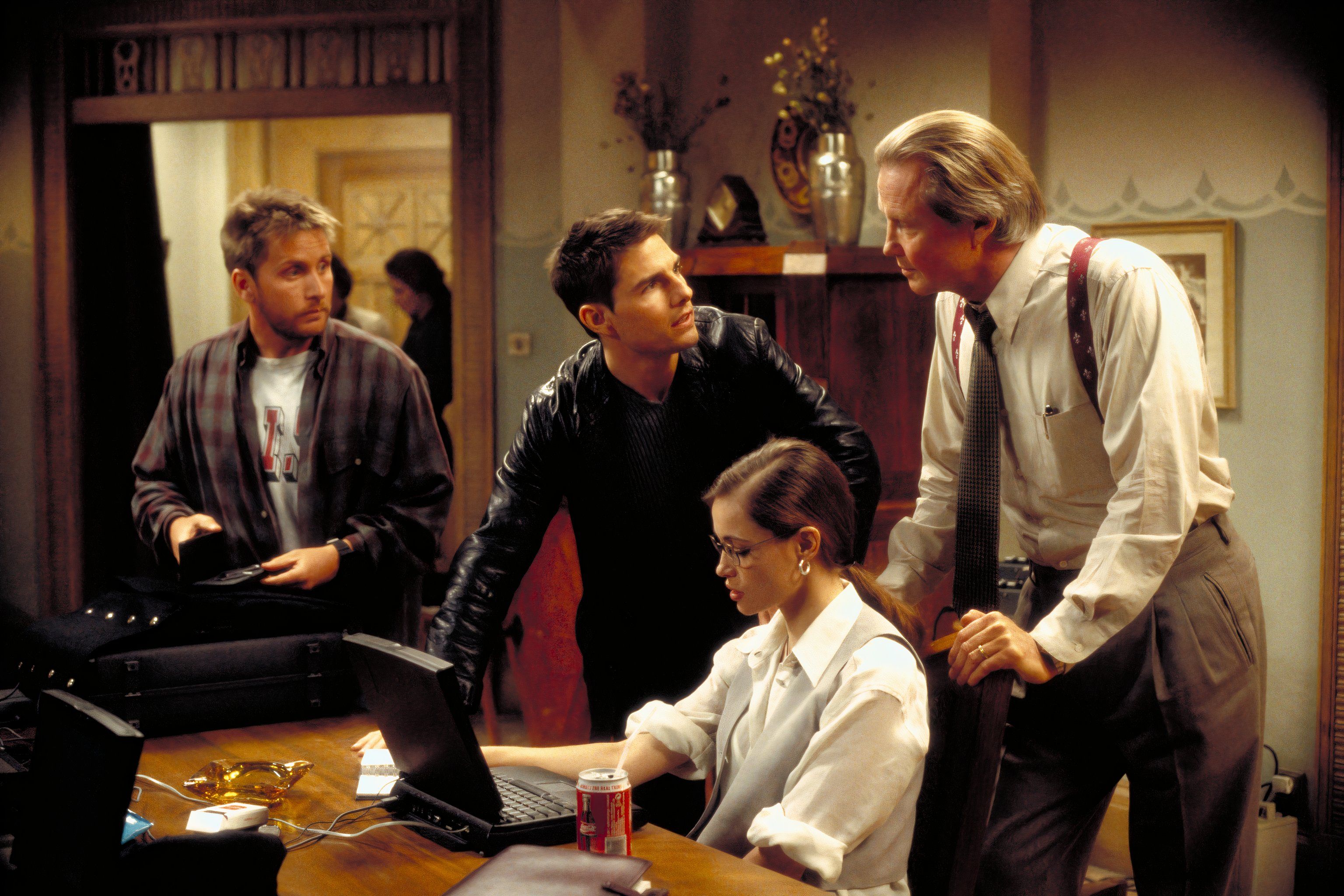
From the start, “Mission: Impossible” seems reminiscent of a TV series. Its catchy theme tune, amusing masks, and peculiar devices create an atmosphere that defines this action-adventure’s unique style. However, Brian De Palma’s distinct touch is evident, hinting at a darker tone compared to previous works. The film doesn’t hold back, as numerous main characters meet their untimely demise within the first 15 minutes, some in gruesome fashion. The suspense ignited by the opening mission remains constant throughout the movie, as De Palma skillfully builds and sustains tension.
In a swift move, Brian De Palma skillfully employed his arsenal of thriller elements to craft Mission: Impossible, a high-octane action film with subtle, ominous undercurrents. However, the narrative, themes, and characters also possess an undeniable air of levity that resonates deeply within the movie. This lightness is a deliberate attempt to embody the essence of spy thrillers and the original Mission: Impossible TV series, while simultaneously surprising fans with unexpected excitement. Throughout its production, it was striving to be the quintessential Brian De Palma masterpiece, and though viewers may not have realized it then, it could very well be his last remarkable work in this genre.
Impossible came out in the mid-’90s, only three years after Carlito’s Way, capturing De Palma towards the end of his prime. By this stage in his career, he had already mastered action cinema and thriller storytelling, making him an ideal choice for bringing Mission: Impossible to life. At the same time, Tom Cruise was also rising to prominence. With a few dramatic roles under his belt, Cruise was moving towards bigger budget films (which would become his career’s mainstay). Having recently completed A Few Good Men, The Firm, and Interview with a Vampire, Mission: Impossible was Cruise’s first foray into something like this, setting him on the path he was keen to follow.
Without a doubt, viewers couldn’t have anticipated that “Mission: Impossible” would turn out to be an iconic series, but Tom Cruise consistently surpasses expectations. He did just that initially when he joined Brian De Palma for an unexpected adaptation in the action genre. At the time, some skepticism might have arisen due to the fact that “Mission: Impossible” was Brian De Palma’s first venture into this particular film genre. Given how the franchise developed, his name might not be the first association people make when thinking about this epic series.
Brian De Palma Set the Tone for Two Decades of Mission: Impossible
The Sequels Have Greatly Separated Themselves From What Began in 1996
Despite the evolution of the Mission: Impossible series over time, Brian De Palma’s original film laid a formula that occasionally resurfaces in the current sequels. Each story typically revolves around a mission, a primary antagonist to defeat, and an unattainable objective at its core. The journey is filled with unexpected twists and turns as well. However, compared to De Palma’s 1996 little spy thriller, the Mission: Impossible films have transformed into larger-scale action movies and visual spectacles in today’s perception. When people think about this franchise nowadays, they seldom recall who directed the first film due to the series’ grandeur often overshadowing its origins.
Over time, the Mission: Impossible films have evolved into a grand vision by Christopher McQuarrie and Tom Cruise, expanding in size and ambition with each passing year. Yet, these movies might never have come into existence if Brian De Palma hadn’t first defined what a high-budget modern spy thriller could be. In essence, the Mission: Impossible franchise stands as the epitome of what fans cherished from the 1966 TV series and the 1996 classic, while also transforming into something far beyond its original concept.
Impossible III” to bring it closer to John Woo’s original vision. Although fans appreciated that one, they didn’t ask for more as the studios had anticipated. In fact, it wasn’t certain if the franchise would continue after that point. It wasn’t until 2011 that another film was released. Unfortunately, Brad Bird’s contribution to the series often goes unrecognized.
In the world of Mission: Impossible, it was a bird who initially set the distinctive tone that fans associate with the series today. However, it was Christopher McQuarrie who played a significant role in shaping that installment creatively and eventually took charge as director for all subsequent sequels. The turning point came with Mission: Impossible – Ghost Protocol, where the films underwent a transformation, introducing a new level of style and visual grandeur that hadn’t been seen before. This evolution can be attributed to having a vision for what the series could become, which has kept it alive and thriving as often as it is today. Considering these changes throughout the franchise’s history, it’s not surprising that Brian De Palma fades into the background at this point in the saga.
Brian De Palma Is Not the Director People Equate With Mission: Impossible
He Is Best Known for His Classic Gangster Movies and New Hollywood Era Status
It’s somewhat surprising to consider that Brian De Palma, a renowned director often associated with elegance and Hollywood aristocracy, kickstarted the $4 billion action franchise with one of his films in 1996. While the suspenseful elements of this film align with his preferences, he is not typically connected with the action/adventure genre. In fact, Brian De Palma is one of the five most influential directors to emerge from the New Hollywood era in the 1970s, alongside Steven Spielberg, George Lucas, and Francis Ford Coppola. Together, they revolutionized cinema with their early works. Remarkably, unlike his fellow New Hollywood contemporaries, De Palma didn’t often work on big-budget productions during that period.
In the particular circle, Brian De Palma was known for producing smaller films compared to his contemporaries. His initial thrillers such as “Obsession,” “Dressed to Kill,” and “Blow Out,” along with his horror staple “Carrie,” were noticeably more indie and cost-effective compared to the movies being made by Spielberg, Lucas, and Coppola during that era. Interestingly, despite being a pioneer of sorts who ignited one of cinema’s most enduring action series, it’s ironic that De Palma was the one making lower-budget films. This only underscores his extraordinary skill and versatility as a filmmaker.
Brian De Palma is renowned for his talent to seamlessly transition between film genres, a skill shared by many ‘movie brats.’ Though he kick-started the Mission: Impossible series, Brian will forever be remembered for creating some of the greatest films in cinema history. Notably, his most iconic works are Scarface, The Untouchables, and Carlito’s Way. However, fans of the Mission: Impossible franchise owe him a debt of gratitude for launching their beloved series.
Read More
- Who Is Harley Wallace? The Heartbreaking Truth Behind Bring Her Back’s Dedication
- 50 Ankle Break & Score Sound ID Codes for Basketball Zero
- 50 Goal Sound ID Codes for Blue Lock Rivals
- KPop Demon Hunters: Real Ages Revealed?!
- Lottery apologizes after thousands mistakenly told they won millions
- 100 Most-Watched TV Series of 2024-25 Across Streaming, Broadcast and Cable: ‘Squid Game’ Leads This Season’s Rankers
- Umamusume: Pretty Derby Support Card Tier List [Release]
- Ultimate AI Limit Beginner’s Guide [Best Stats, Gear, Weapons & More]
- Mirren Star Legends Tier List [Global Release] (May 2025)
- Former Blizzard president worried about future of Xbox and says changes are needed “fast”
2025-05-20 00:51
